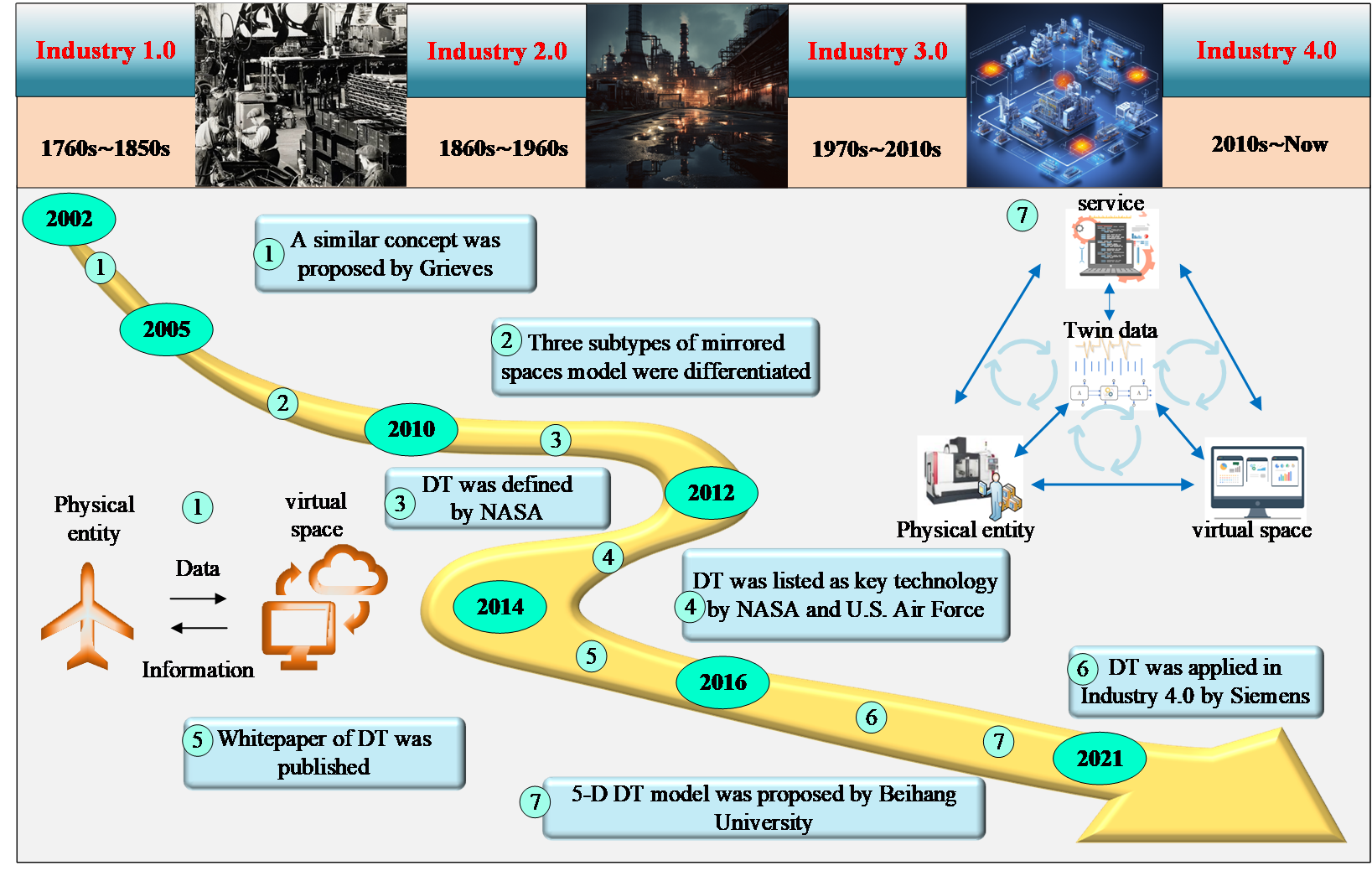Found 1 results
Review
28 March 2024Digital Twins Enabling Intelligent Manufacturing: From Methodology to Application
Digital twin technology develops virtual models of objects digitally, simulating their real-world behavior based on data. It aims to reduce product development cycles and costs through feedback between the virtual and real worlds, data fusion analysis, and iterative decision-making optimization. Traditional manufacturing processes often face challenges such as poor real-time monitoring and interaction during machining, difficulties in diagnosing equipment failures, and significant errors in machining. Digital twin technology offers a powerful solution to these issues. Initially, a comprehensive review of the research literature was conducted to assess the current research scope and trends. This was followed by an explanation of the basic concepts of digital twins and the technical pathway for integrating digital twins into intelligent manufacturing including outlining the essential technologies for creating a system of interaction between the virtual and real worlds, enabling multimodel fusion, data sensing, algorithm-based prediction, and intelligent decision-making. Moreover, the application of digital twins in intelligent manufacturing throughout the product life cycle was detailed, covering product design, manufacturing, and service stages. Specifically, in the manufacturing phase, a model based on heat conduction theory and visualization was used to construct a time-varying error model for the motion axis, leading to experiments predicting the time-varying error in the hole spacing of a workpiece. These experiments achieved a minimum prediction error of only 0.2 μm compared to the actual error. By compensating for time-varying errors in real time, the variability in the hole spacing error decreased by 69.19%. This paper concludes by summarizing the current state of digital twins in intelligent manufacturing and projecting future trends in key technologies, application areas, and data use, providing a basis for further research.
